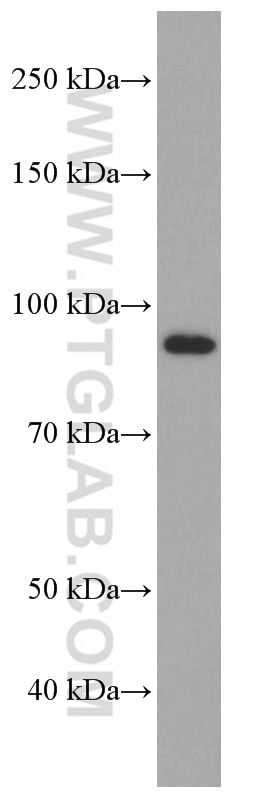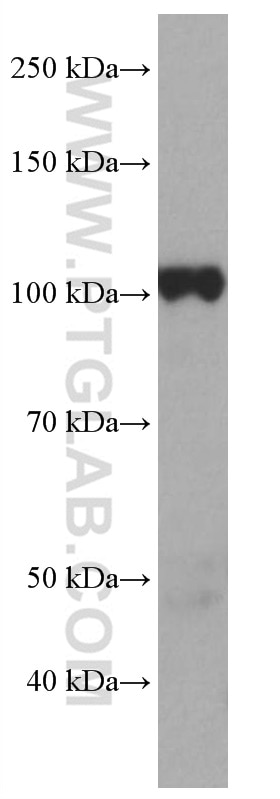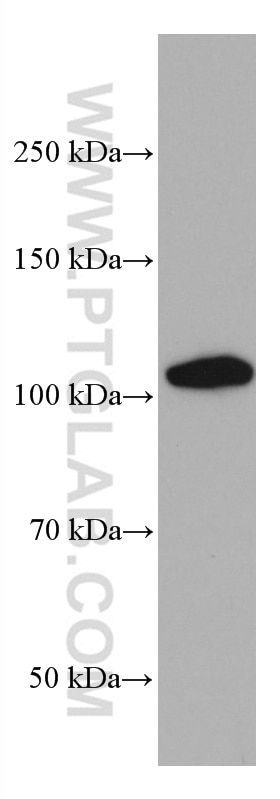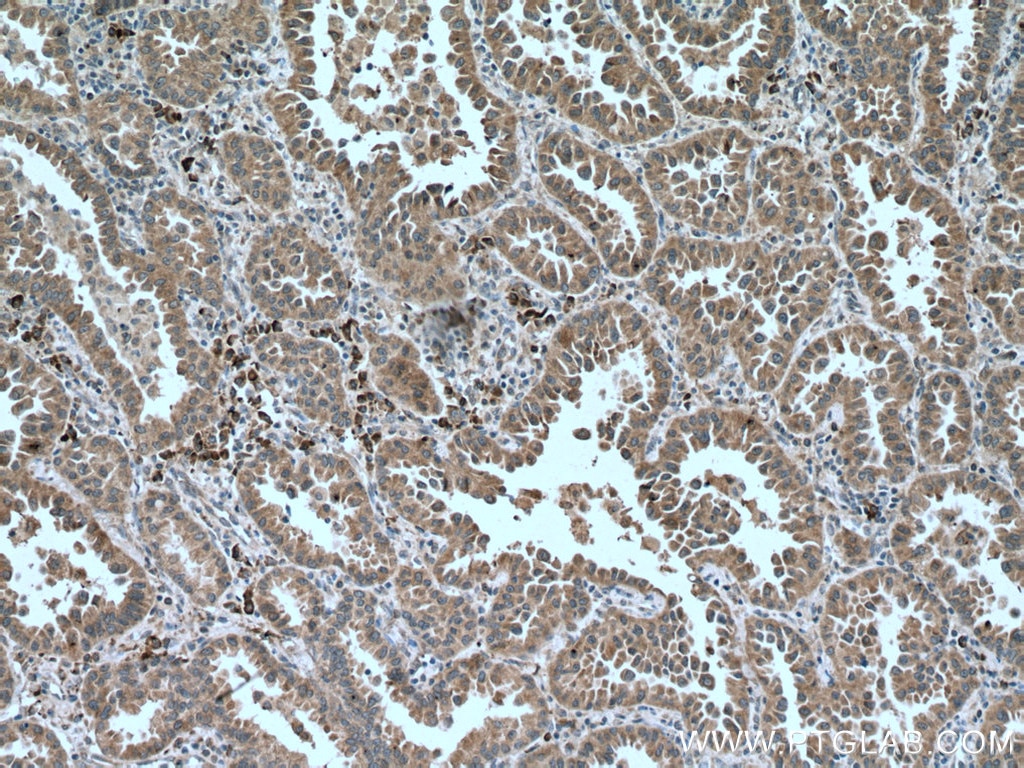PHEX Monoklonaler Antikörper
PHEX Monoklonal Antikörper für WB, IHC, Indirect ELISA
Wirt / Isotyp
Maus / IgG1
Getestete Reaktivität
Hausschwein, human, Ratte
Anwendung
WB, IHC, Indirect ELISA
Konjugation
Unkonjugiert
CloneNo.
1D4B2
Kat-Nr. : 66934-1-PBS
Synonyme
Geprüfte Anwendungen
Produktinformation
66934-1-PBS bindet in WB, IHC, Indirect ELISA PHEX und zeigt Reaktivität mit Hausschwein, human, Ratten
| Getestete Reaktivität | Hausschwein, human, Ratte |
| Wirt / Isotyp | Maus / IgG1 |
| Klonalität | Monoklonal |
| Typ | Antikörper |
| Immunogen | PHEX fusion protein Ag20290 |
| Vollständiger Name | phosphate regulating endopeptidase homolog, X-linked |
| Berechnetes Molekulargewicht | 749 aa, 86 kDa |
| Beobachtetes Molekulargewicht | 76-80 kDa, 95-100 kDa |
| GenBank-Zugangsnummer | BC105059 |
| Gene symbol | PHEX |
| Gene ID (NCBI) | 5251 |
| Konjugation | Unkonjugiert |
| Form | Liquid |
| Reinigungsmethode | Protein-G-Reinigung |
| Lagerungspuffer | PBS only |
| Lagerungsbedingungen | Store at -80°C. 20ul Größen enthalten 0,1% BSA. |
Hintergrundinformationen
PHEX encodes a transmembrane endopeptidase that belongs to the type II integral membrane zinc-dependent endopeptidase family. The protein usually expressed in osteocytes, osteoblasts and odontoblasts, and it was thought to be involved in bone and dentin mineralization and renal phosphate reabsorption (PMID:28982589). Otherwise, studies showed that PHEX transcripts were identified in human osteosarcoma-derived cells and in differentiated mouse osteoblasts, but not in immature mouse preosteoblasts, indicating the stage-specific expression of the protein (PMID:9199999). Defects in PHEX are responsible for X-linked hypophosphatemic rickets (HYP) (PMID:22339660). Glycosylation of proteins results in higher molecular weight, and about 95-100 kDa band were reported (PMID:25128529; PMID:18728349).









